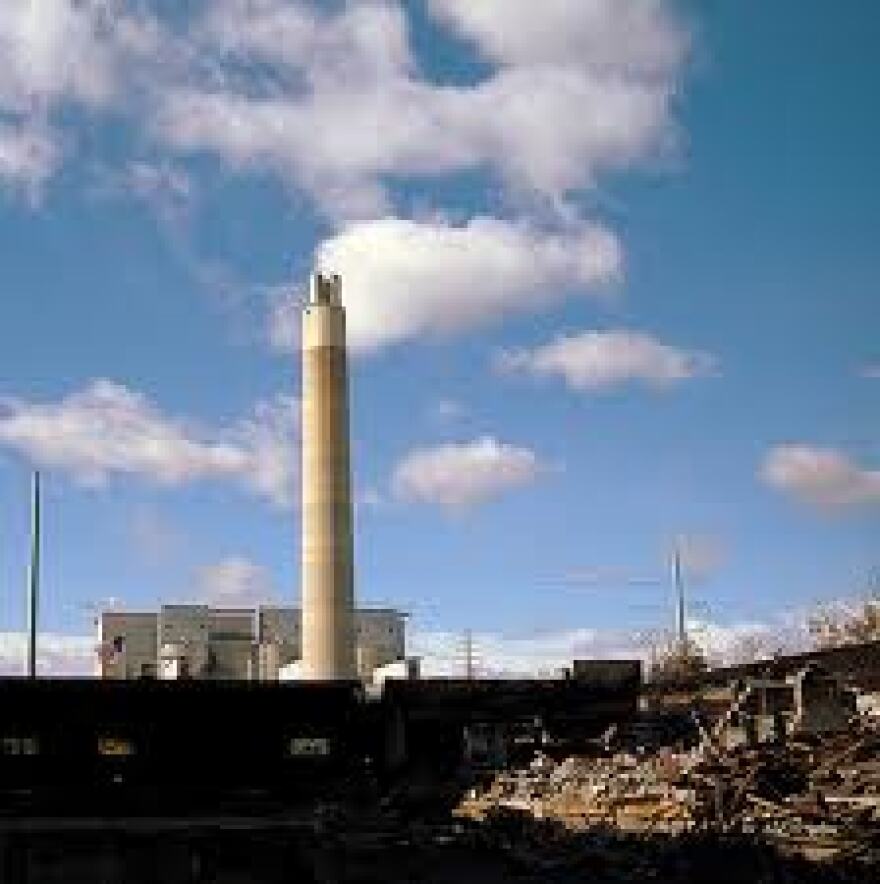Detroit’s hulking trash incinerator stopped operating in 2019. And this weekend, the city plans to demolish its most visible remnant — the facility’s smokestack.
City officials say the smokestack, which looms over the I-75 and I-94 interchange just north of downtown Detroit, will come down by controlled implosion around sunrise on Sunday. They say nearby neighborhoods have been notified, and should be mostly unaffected — though they suggest residents might want to shut their doors and windows as a precautionary measure.
But at least one group that campaigned to shut the incinerator down is unhappy about the plans for its demise. KT Morelli, who leads Breathe Free Detroit, said the city is being too casual about the possibility of chemical-laden dust escaping the implosion.
“These are the same types of chemicals that caused our community harm, and caused a lot of rare cancers and respiratory and heart problems here that we still live with,” Morelli said.
Morelli also disputed the city’s claims that it notified nearby residents through door-to-door outreach. She said that when Breathe Free Detroit conducted its own neighborhood canvass, no one they encountered had received official notification from the city.
“Some had heard about it through the news, and others had heard about it through other community leaders,” Morelli said. “But we're concerned that folks are not going to be aware.”
Morelli said similar implosions have gone wrong before, including a botched 2020 smokestack implosion in Chicago’s Little Village, which left the area covered in dust. And just this month, the demolition of smokestacks at a former coal-fired power plant outside Pittsburgh damaged homes and power lines. Morelli said a gradual dismantling of the structure would have been a more responsible way to take it down.
For its part, the city of Detroit insists the demolition process will be safe. Officials say crews have removed hazardous materials from the site and will use water misting to control dust from the implosion. They say workers will also conduct air quality checks and vibration monitoring during and after the implosion.
The city expects to complete the facility’s demolition by July. Currently, there are no firm future plans for the city-owned site.





